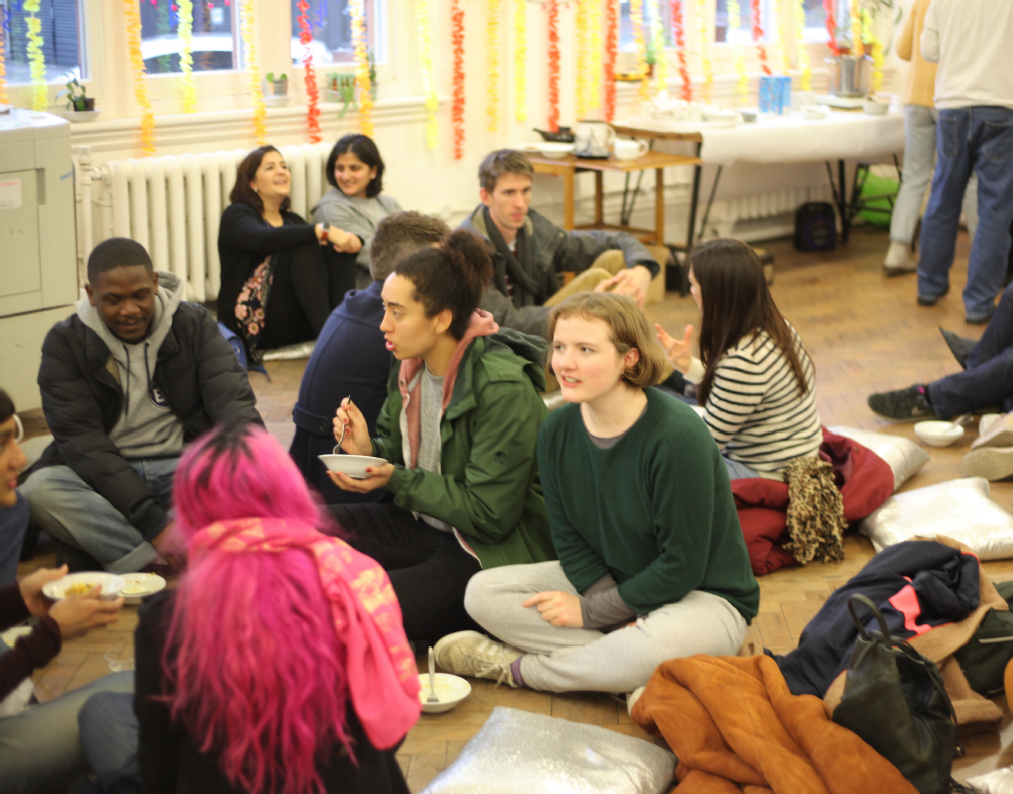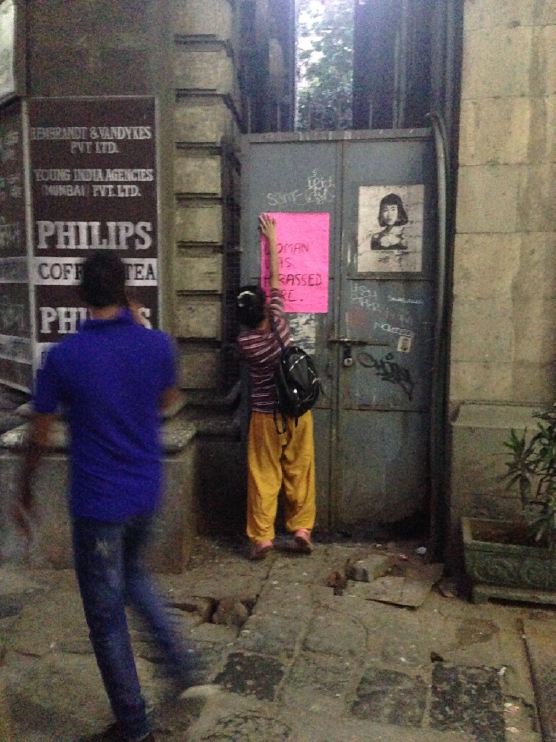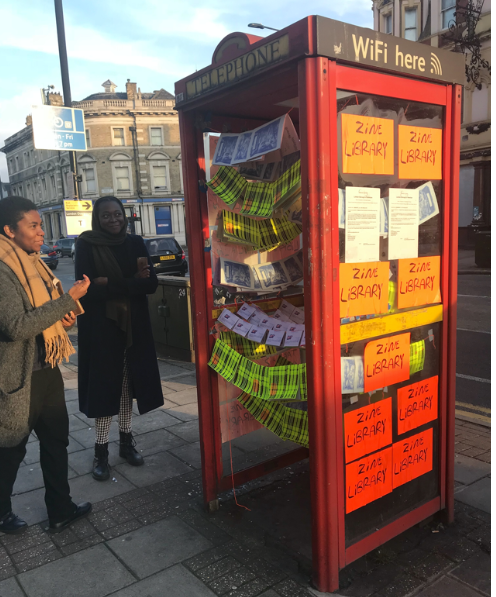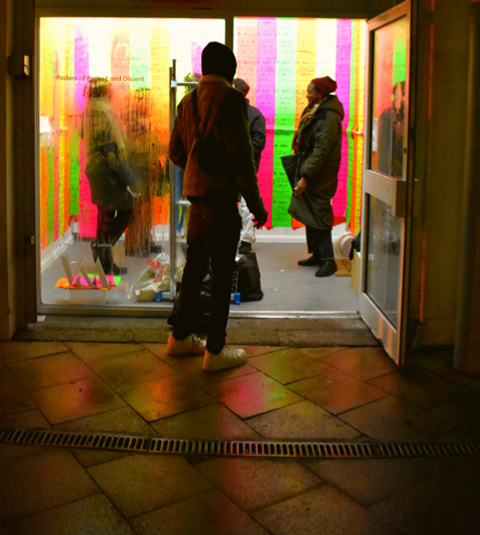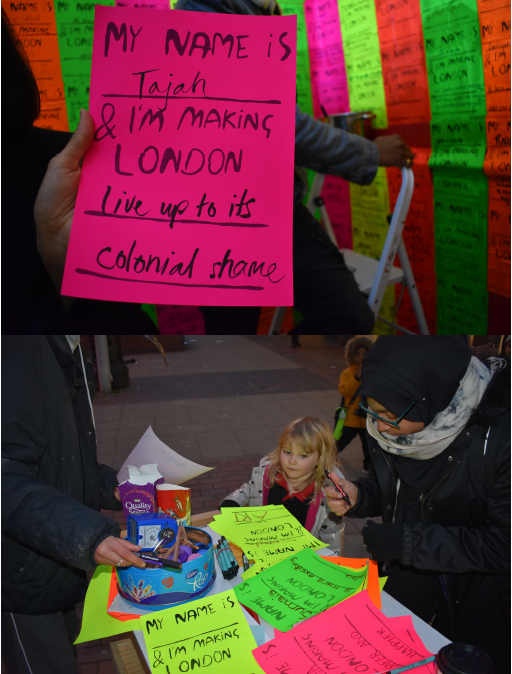Zines
Art for aqui thami is not just the zine that she creates but also the space where they come from, and eventually occupy. Such as in Sister Library and Zine Library, she turns the four walls that enclose the zines into an experience within themselves where people from all walks of life can critically reflect on and celebrate the community. Zines such as ‘Chicken Biryani’ and ‘Home’, among others, foreground the unifying factors that can bring together people from different nationalities and cultures, highlighting the human potential of compassion and collaboration. The Chicken Biryani zine, for instance, was made after trying out many different biryanis from east London – Hyderabadi, Karachi, Dhaka, Kabul, etc. – and inviting the community to eat together. This was an interactive multisensory installation where participants could experience and celebrate the rich archive of the community in East London, as is preserved in food. On the other hand, zines such as ‘Periods’ celebrate menstrual flow in all its messiness, compelling us to question the precarious constructs created by society. These zines reflect not only the themes aqui explores through her work, but also ways in which the audience, participants and viewers can immerse and engage with them.
Public Intervention Projects
The public intervention projects curated by aqui are unapologetic in their reclamation of identities and rights through the public space. As passers-by cross posters saying “a woman was harassed here” – posters she has pasted everywhere she was harassed in the city – they are forced to confront the ignorance perpetuated in our society, while giving others a sense of solidarity and encouragement to reclaim their own narratives. Even as they are stark in their audacity, her interventions are not obtrusive. Her projects are people driven. Understanding the issues and fears of society, thami allows the people to create new experiences from the spaces they have been a part of many times before. Their relevance in contemporary times further helps reach the public and make them feel unified. For instance, a project “hello my name is” invited the residents of East London to articulate their relationship with the city amidst the fear and helplessness brought in by the citizenship policies – a growing concern across the globe. Such projects draw people to reflect on current issues through humane collective experiences, and not just isolated facts and figures.








